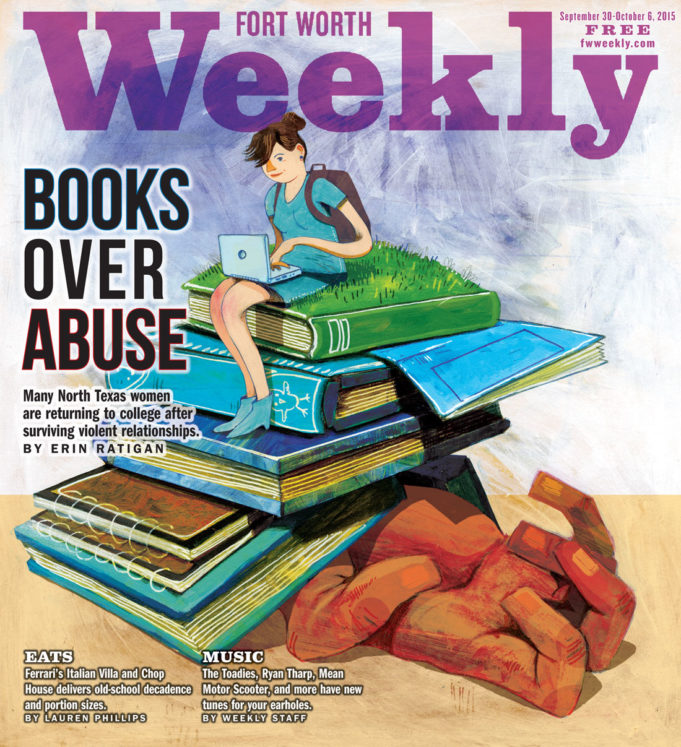Barbara Sullivan’s husband wasn’t always abusive. At first, he was kind, loving, and attentive.
Then temptations got the better of him.
“I lost him to drugs,” she said. “He wasn’t always like that.”
Her moment of clarity was slow to come. For 20 years she tried to ignore the psychological abuse, such as being called fat in public. She stayed with him even after he pushed her down a flight of stairs. She was pregnant with twins at the time. Both children were lost.
More violence followed. After he heaved an iron skillet at her back, Sullivan was on the verge of crumbling. Her husband didn’t like the dinner she’d prepared.
“He was in [jail] for three months, and then he was out,” she said.
Afterward, she said, he came back “with a vengeance.”
It was then she knew she had to leave.
With her sister and three small children by her side, Sullivan took the 51-hour bus ride from Dale City, Va., to Dallas. They moved to a battered women’s shelter, where they stayed for three months. After that, they moved to a nearby mission, an experience she said she would never want to repeat. Seeing her children try to adapt to a strange and often scary living environment touched something deep inside her.
“I wouldn’t even send my enemy” there, she said. “I don’t think shelters are for anyone.”
Her calling became clear. She wanted to help other women, other children, to avoid finding themselves in the trap she’d endured. After years of struggling with self-doubt, she enrolled in the Women in New Roles program at Tarrant County College’s South Campus in 2014. The transitional program helps women with career advancement, résumé building, and counseling. The majority of these women are vying to return to the workforce.
“I think every woman should be in that program,” Sullivan said. “I think they should make it mandatory.”
TCC teacher and counselor Emily Lunday Garrett founded WINR in 1978 after going through a divorce. She wanted to help women in similar situations return to the workforce.
Sullivan will begin her bachelor’s program at Texas Wesleyan University next year, with an emphasis on film writing and production. In the meantime, she’s running her own daycare service. Watching so many children enter shelters, she said, inspired her to make a difference in the lives of struggling families.
“I love children, and I wanted to give back,” she said. “I do help a lot of parents, even those who can’t pay me.”
A growing number of women share similar circumstances. Colleges have become an escape route for battered women, a way to rebuild their lives and leave abuse behind. With financial insecurity posing a problem for survivors, several foundations have even established scholarships specifically to help abused women return to college.
“You’re kind of looking for a safe time to leave,” said a woman who recently escaped a violent relationship and is enrolled at Texas Woman’s University. “It can be really life threatening if you don’t have a plan to exit.”
These days, exit plans often lead back to school.
*****












